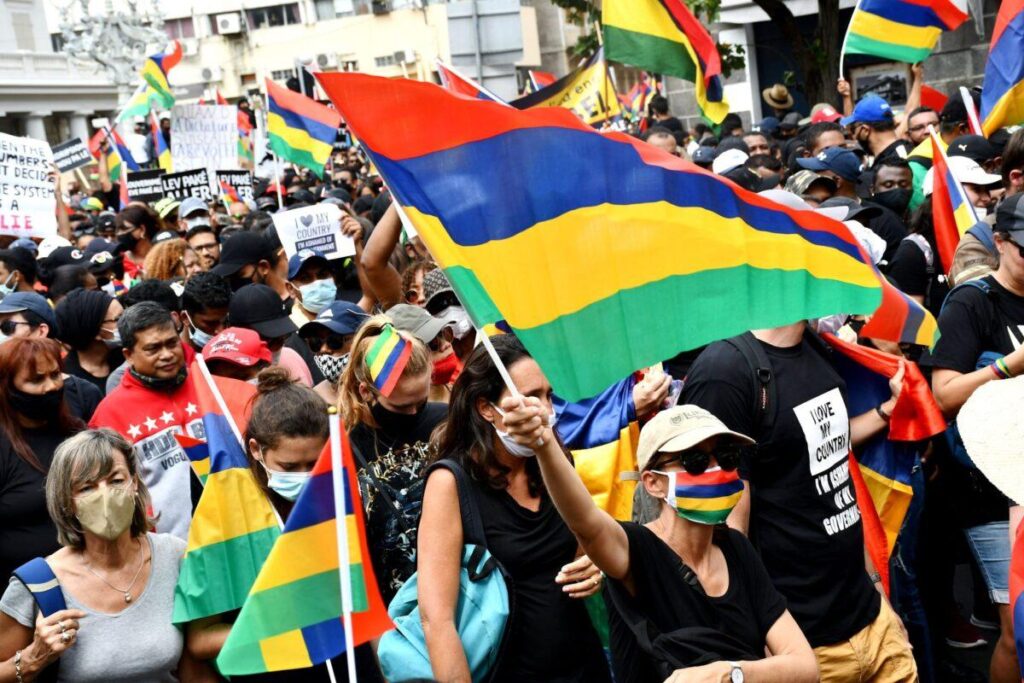In Summary
- Mauritius is the only African country with a full democracy, and it tops the list with a democracy index score of 8.23.
- African countries leading in democracy are not just holding transparent elections, they are limiting executive power, strengthening courts, and enforcing term limits.
- Several countries on this list have recorded peaceful transfers of power in recent years, signaling a quiet but steady shift toward electoral maturity and political accountability across diverse African regions
Deep Dive!!
Democracy in Africa has become a strategic tool and a deliberate effort to enhance governance, elections, and public life in many African countries. African democracies are undergoing changes, not just to conform to international requirements, but also to bear the traditional concerns of their citizens. Citizens participate more, courts act more, and the rule-abiding term limits are more observed.
One of the most credible measurements of democratic governance around the world is the Democracy Index 2024, provided by the Economist Intelligence Unit (EIU). This index assesses countries on five core pillars: electoral processes and pluralism, functioning of government, political participation, political culture, and civil liberties.
10. Zambia

Zambia’s democracy index score of 5.73 reflects its defining moments in modern political history like the peaceful and transparent general elections of 2021. It ended the Lungu presidency and ushered in the opposition figure Hakainde Hichilema. This transition ends military interference, reaffirms public trust in the ballot box. Zambia, though partly still has a state-controlled media landscape, its citizens’ participation and a responsive judiciary reflect its democratic credibility.
9. Malawi
Malawi’s constitutional court annulled the severely flawed presidential elections of 2019, which is a rare instance of a win for democratic principles. The annulment led to a re-run held in 2020 under tighter rules, which brought Lazarus Chakwera into power. Since then, Malawi has been credited for having institutions functioning independently. Still, the score of 5.85 incorporates public perception against systemic delays in carrying out policy and the degree to which patronage networks have undue influence.
8. Senegal
Senegal has been viewed as a stable island in West Africa for a long time. With regularly organized elections and peaceful transitions of power, it stands as an ominously resilient democracy. The 5.93 is in itself the evidence supporting the presence of credible electoral mechanisms, but also areas where these have been tested. A strong civil society and a relatively independent press have contributed to an environment conducive to sustaining democracy.
7. Lesotho
The democracy of Lesotho remains in transition, being subjected to the recurrent coalition governments requiring compromises among political groups. While its population makes the country easy to govern, its geographical location and military achievements have tested the stability of the political arena from time to time. However, constitutional reforms have placed the country at a democracy index score of 6.06. Recent elections have been very competitive, with active public participation in a country set for recovery as a democracy.
6. Ghana
Ghana has remained almost at the forefront among the democratic countries of Africa, and a 6.24 score still puts the country pretty much under the category of a flawed democracy, yet it is above the regional average. Competitive electioneering processes, active political parties, and a fairly free press constitute the key pillars of Ghana’s democracy. Ghana’s Electoral Commission and the judiciary stand as highly respected brands in the eyes of the public.
5. Namibia
Since it achieved independence, Namibia has witnessed a gradual establishment of democratic norms. At a democratic index score of 6.48, Namibia is endowed with virtually unlimited civil liberties and a trustworthy electoral system. While the opposition parties allege that the ruling SWAPO party exerts too much influence, the electoral processes have, for the most part, been credible. The courts have acted independently, and the media enjoys a considerably freer atmosphere than in many of its neighbors.
4. South Africa
Considered to have probably one of the most transparent political systems in Africa, South Africa enjoys the virtue of a strong Constitutional Court and an equally vibrant civic society. The country retains its strength in judicial independence and civil liberties with a 7.16 democratic index score. Citizens speak out, organize, and hold leadership to account, particularly through courts and the media.
3. Cabo Verde
Cabo Verde quietly upholds one of Africa’s strongest democratic cultures. The island nation is known for peaceful transfers of power, low corruption levels, and broad political freedoms, scoring 7.58. The country has ranked high in press freedom ratings and contains a mature parliamentary system. One of the few Lusophone countries that can proudly boast sustained democratic success, Cabo Verde proves that size does not limit quality institutions.
2. Botswana
Botswana is often held up as one of the best examples of democracy in Africa, and with a rating of 7.63, the political systems of the country continue to be a benchmark. The multi-decade reign of the Botswana Democratic Party has raised questions about its electoral competitiveness; however, the country continues to respect term limits, maintain judicial independence, and uphold anti-corruption standards throughout. The economy, centered on diamond mining, has permitted a government that spends generously on public amenities while not depending excessively on aid, building, and maintaining good citizen relationships.
1. Mauritius
Mauritius ranks highest not just in Africa but also internationally, with an 8.23 score on the Democracy Index, allowing it the status of a full democracy. The political scene is pluralistic, the elections are transparent, and the judiciary commands respect. It means the country builds its institutions around accountability, with successive governments chickening away from any hint of authoritarianism. What sets Mauritius apart is that it enjoys a rare balance between executive power and institutional oversight, making it one of the few African countries endowed with a truly democratic culture.
https://www.africanexponent.com/top-10-african-countries-with-the-highest-democracy-index/


